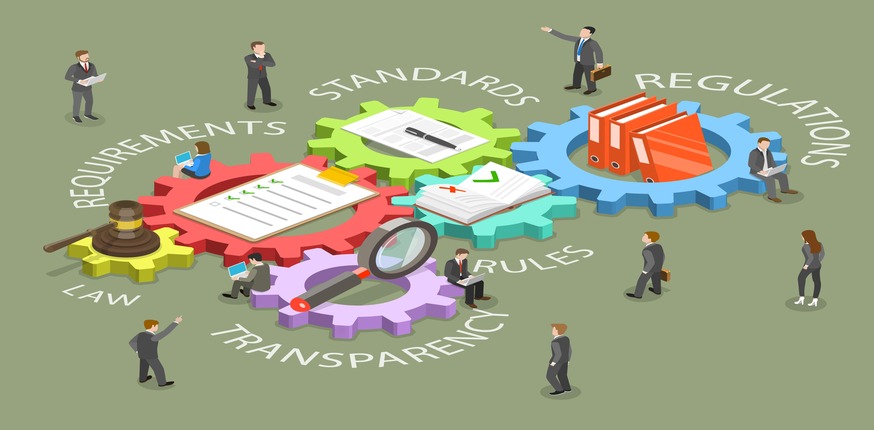Data governance has become a crucial facet of business that organizations around the world take very seriously. In a data economy, it’s critical for businesses not only to make the best use of data, but also to do so in a way that preserves goodwill and trust. Data governance is the key aspect in maintaining this balance.
The need for data governance, in the larger part, is being driven by real-world scenarios and responsibilities that businesses have to deal with routinely. On the one hand, it is crucial for standardization and optimization of an efficient, effective, and highly value-adding data workflow. On the other, it is instrumental in securing data and aiding in compliance efforts, especially with the prevalent compliance guidelines of today like GDPR.
Let us take a look at some of the core areas that drive the need for data governance.
Data Compliance, Security & Auditing
All over the world, regulatory frameworks dealing with data and the related compliance requirements enforced by governments have compelled organizations to reflect on their data collection, storage, usage, and disposal methods. The most prominent regulation in this regard is the European GDPR, considered as the de facto standard for the rest of the world.
By and large, compliance requires businesses to enforce scheduled data audits and have reliable, practical measures in place to ensure proper data security and privacy. Moreover, these regulations evolve over time, adding even more in terms of addressed areas and best practice recommendations.
Keeping this in mind, the renewed focus on compliance data security is one of the most important factors driving the need for data governance. Forced by this shift in regulatory measures, companies are taking notice and creating or editing their data governance plans to suit the needs of the hour. Keeping a focus on compliance and data security also has other intangible benefits for businesses, helping them create trust and reliability and build a reputation.
Data Integrity & Usability
It’s vital to remember that data used by businesses goes mostly towards analysis and the creation of actionable business insights. Data analysis can be a powerful tool to craft finely-tuned, complex, and nuanced business strategies. It can also help businesses drastically improve the customer experience. To accomplish this without a hitch, businesses need to collect and store valuable, high-quality data and use methods like prescriptive, descriptive, and predictive analytics to generate business insight.
Data governance is a poignant way to reach that goal. With a powerful data governance plan, businesses can always have on hand the right amount of high-quality, holistic data for analysis, leading to better business insight and customer experience.
Data governance is also crucial as more and more businesses move towards more complex data architectures like data lakes and data warehouses. With a well-thought-out set of integrity strategies, the data can become and remain usable over time, leading to easier analysis and more mission-critical insight.
Data Standardization
Standardization is an integral part of data governance and the need for standardized processes in an increasingly complex data landscape is one of the major drivers for competent data governance. In complex data storage and analysis scenarios, it is critical to have a standardized governance model in place that looks after all the data access, data storage, and data security while providing the most optimum processes and policies across the entire lifecycle of the data.
Standardization ensures that data is internally consistent, owing to being transformed into a consistent data format and organized in a consistent manner. When data is stored in different systems and formats, there can be small inconsistencies and differences that can cause inaccuracies and misinterpretation in the analysis. In order to deliver reliable, actionable insight to management, it is crucial to avoid these errors by maintaining consistency through standardization.
Proactively ensuring the standardization of data can go a long way towards preserving high data quality and can give added importance to data. Since data quality is an integral part of data governance, standardization becomes an undeniable part of the data governance workflow.
Business Decision Making
Data governance has direct ties to the decision-making process of a business, especially when it comes to removing roadblocks from insight-driven, immediate decisions. Lack of governance can create a lack of standardized procedures for handling data and defining key roles, leading to unnecessary and avoidable delays in decision-making that can prove to be detrimental to the long-term progress of the business.
A solid data governance plan, on the other hand, takes a bird’s eye view of all the data the business has at its disposal and brings all important stakeholders together, paving the way to fast, accurate, and intuitive business decision-making. This requirement is a driving force for the need to establish data governance practices backed by the right technology.

